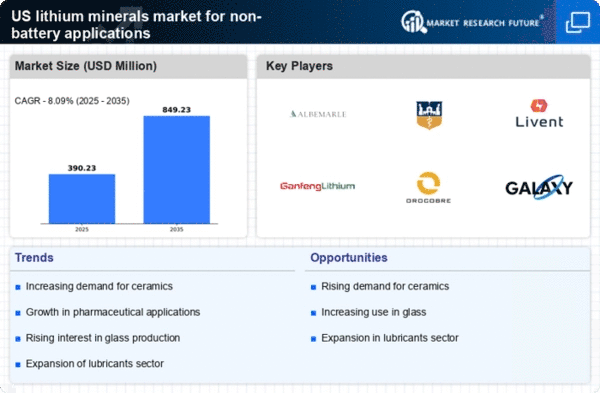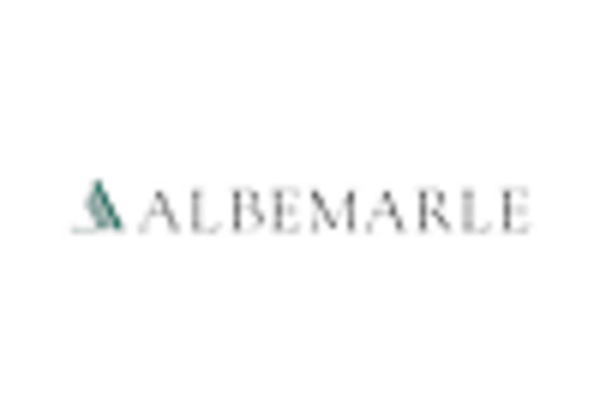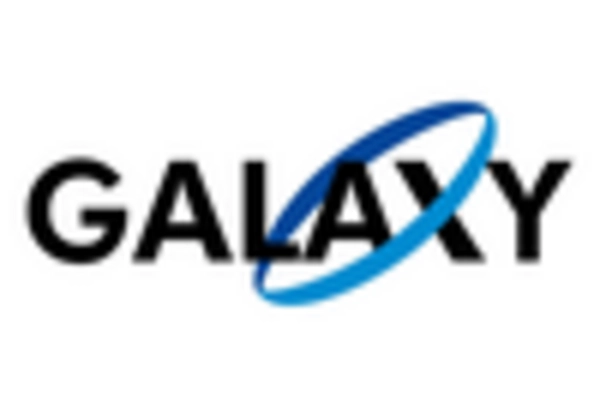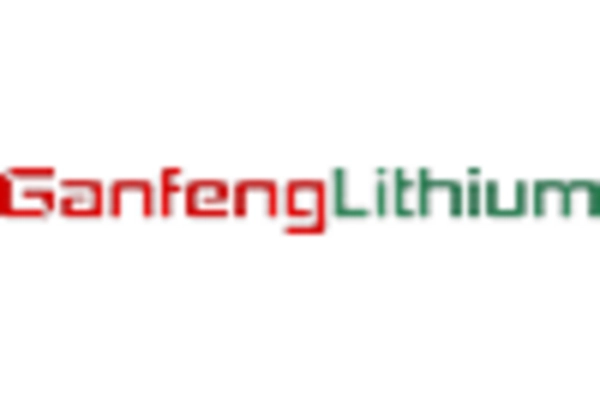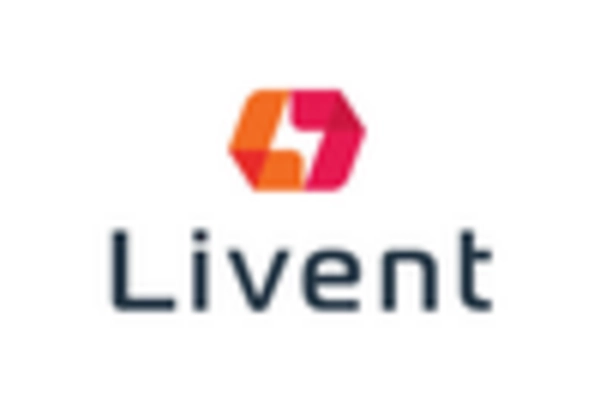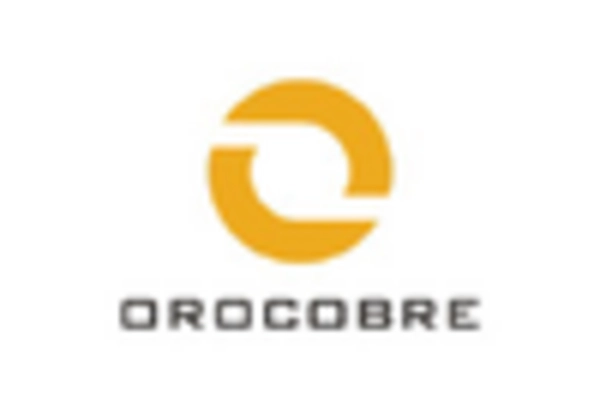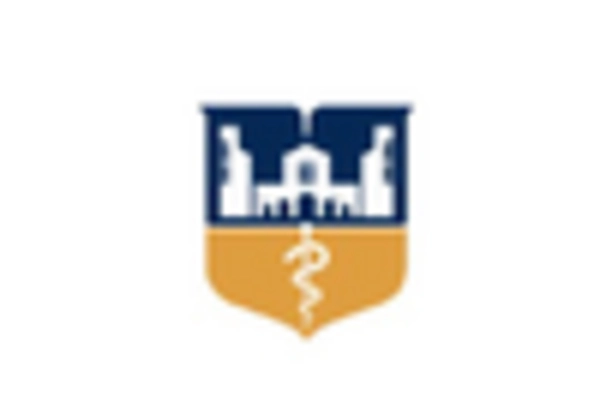The lithium minerals-market-for-non-battery market in the US is characterized by a dynamic competitive landscape, driven by increasing demand for lithium in various applications beyond batteries, such as ceramics, glass, and lubricants. Key players like Albemarle Corporation (US), Livent Corporation (US), and Ganfeng Lithium Co Ltd (CN) are strategically positioning themselves through innovation and regional expansion. Albemarle, for instance, focuses on enhancing its production capabilities while exploring new applications for lithium, which appears to solidify its market leadership. Livent, on the other hand, emphasizes sustainability in its operations, aligning with the growing trend towards environmentally friendly practices. Ganfeng Lithium, leveraging its extensive supply chain, seeks to optimize its production processes, thereby enhancing its competitive edge in the market.The market structure is moderately fragmented, with several players vying for market share. Key business tactics include localizing manufacturing to reduce costs and optimize supply chains, which is crucial in maintaining competitiveness. The collective influence of these major players shapes the market dynamics, as they engage in strategic partnerships and collaborations to enhance their operational efficiencies and market reach.
In October Albemarle Corporation (US) announced a significant investment in a new lithium processing facility in North Carolina, aimed at increasing its production capacity by 30%. This strategic move is likely to bolster its position in the non-battery sector, catering to the rising demand for lithium in various industrial applications. The facility is expected to utilize advanced technologies, which may enhance production efficiency and reduce environmental impact, aligning with current sustainability trends.
In September Livent Corporation (US) launched a new line of lithium compounds specifically designed for the ceramics industry. This initiative not only diversifies its product offerings but also positions Livent as a key player in the non-battery market segment. The strategic importance of this launch lies in its potential to capture a larger share of the ceramics market, which is experiencing growth due to increased demand for high-performance materials.
In August Ganfeng Lithium Co Ltd (CN) entered into a partnership with a leading US-based ceramics manufacturer to supply lithium for specialized applications. This collaboration is indicative of Ganfeng's strategy to expand its footprint in the non-battery market, leveraging its supply chain capabilities to meet specific customer needs. The partnership may enhance Ganfeng's market presence and foster innovation in product development, which is crucial in a competitive landscape.
As of November current trends in the lithium minerals-market-for-non-battery market include a strong emphasis on digitalization and sustainability. Companies are increasingly adopting advanced technologies to streamline operations and reduce their carbon footprints. Strategic alliances are becoming more prevalent, as firms recognize the value of collaboration in driving innovation and enhancing supply chain reliability. Looking ahead, competitive differentiation is likely to evolve from traditional price-based competition to a focus on technological advancements and sustainable practices, underscoring the importance of innovation in maintaining market relevance.


